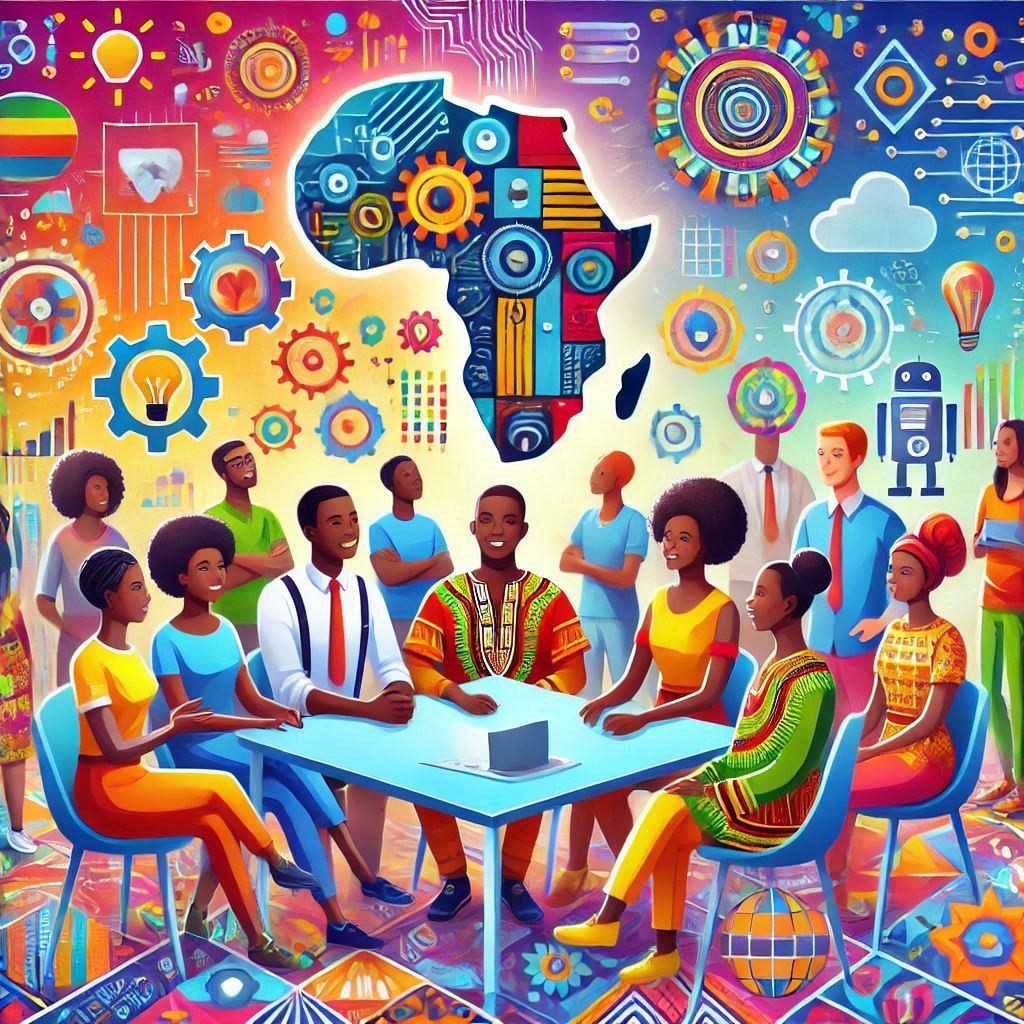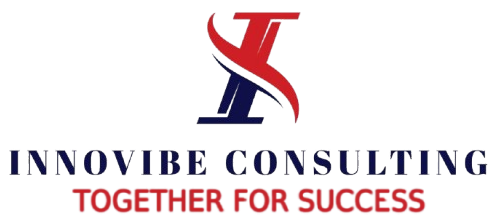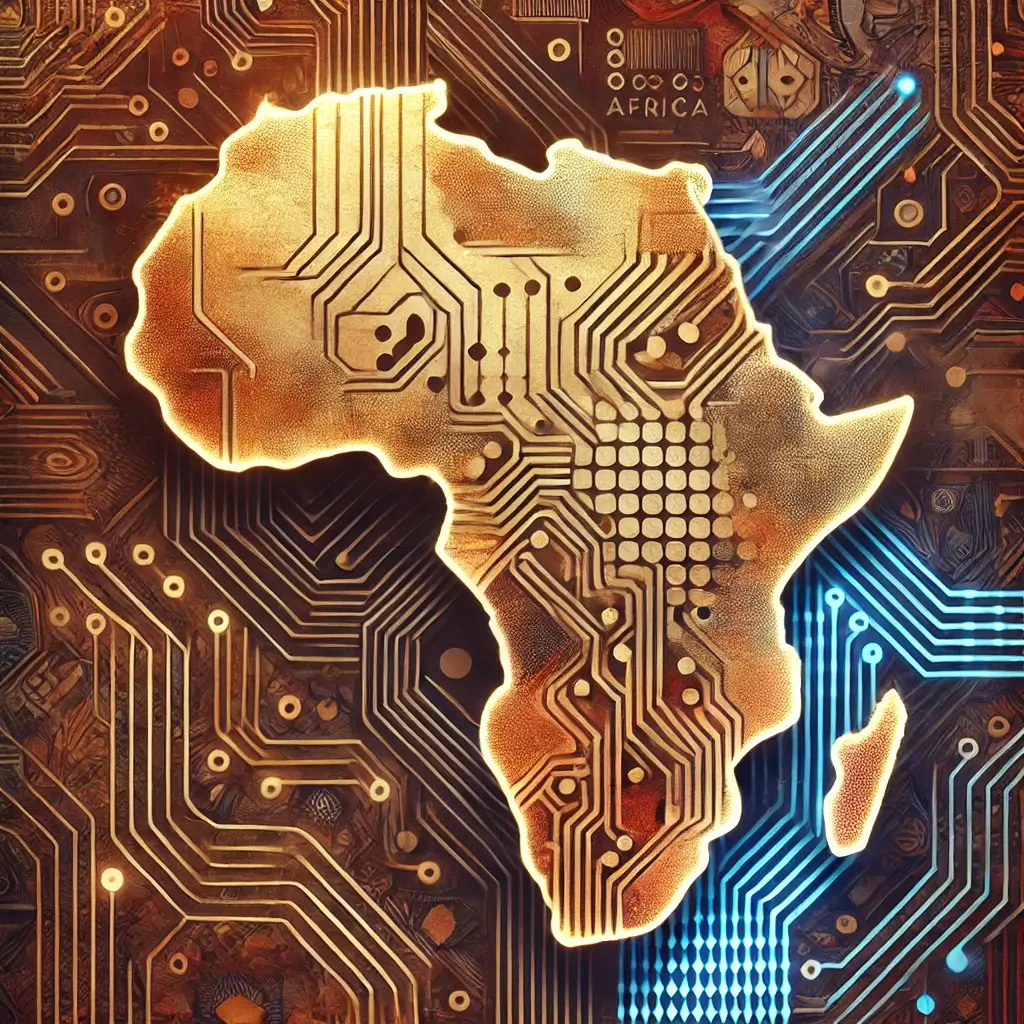Artificial intelligence (AI) is redefining the future of economies worldwide. Yet, most innovations in this field stem from institutions in the Global North, often overlooking the specific needs and challenges faced by Southern countries, particularly in Africa.
This article demonstrates why it is essential for Africa to develop its own AI strategy—leveraging the expertise of its diaspora and emphasizing the pivotal role that Morocco can play in this transformation.
Adapting AI Systems to African Realities: Challenges of Bias, Disconnection, and Cultural Differences
AI systems designed in the North are often built on datasets that reflect the cultural, economic, and social contexts of developed nations.
When deployed in Africa, these systems frequently encounter inherent data biases and a disconnect from local cultures and realities, rendering them unsuitable.
For example, AI algorithms are typically trained on data that does not incorporate Africa’s demographic diversity, thereby limiting their effectiveness on the continent.
Moreover, the ethical frameworks used in the North do not always align with community values or local decision-making practices, leading to AI solutions that are either inappropriate or ineffective.

Leveraging the Expertise of the African Diaspora to Boost AI: Approaches and Partnerships
To overcome these challenges, it is crucial to harness the know-how of the African diaspora working in AI and related fields in the Global North. This community benefits from privileged access to advanced technologies, cutting-edge research, and influential networks—all of which can help strengthen Africa’s AI capabilities.
African professionals abroad can advocate for the integration of African data and perspectives into international AI projects, encouraging the creation of datasets that capture the continent’s linguistic, cultural, and demographic richness, or steering research towards Africa-specific challenges.
Furthermore, they can play a pivotal role by mentoring local researchers, engaging in collaborative projects, and organizing workshops to enhance the skills of African students and professionals.
Capitalizing on Diaspora Expertise to Strengthen AI in Africa: Solutions and Collaborations
By combining their international experience with an in-depth understanding of Africa’s specific needs, diaspora professionals are capable of designing AI solutions tailored to unique challenges, such as optimizing agricultural practices, efficiently managing water resources, or improving access to healthcare in underserved areas.
These initiatives could accelerate the development of AI and technology across the continent. However, for genuine progress to occur, Africa must chart its own course rather than relying on the Global North to disseminate technology. This is precisely where Morocco can play a pivotal role, being ideally positioned to drive AI development in Africa.
Morocco’s strategic geographic location, robust economic growth, and strong cultural ties with both Africa and the North provide it with significant advantages. The country has already made substantial investments in technology, particularly in sectors like renewable energy, smart cities, and digital infrastructure. With an emerging tech ecosystem and initiatives that promote innovation and entrepreneurship, Morocco is well poised to become a true AI hub and a bridge between Africa, Europe, and even North America.
Leveraging its close connections with these regions, Morocco can facilitate partnerships that benefit the entire area. It can launch AI research initiatives that bring together African countries and European or North American institutions, thereby promoting the transfer of knowledge and resources. Moreover, Morocco’s rich cultural and linguistic diversity offers a distinct advantage in developing AI systems that reflect the complexity of the continent.
For instance, Moroccan institutions could lead projects aimed at creating language models and datasets for African languages, ensuring that AI tools respect the cultural richness of the continent. With these assets, Morocco is well positioned to spearhead the development of AI infrastructure in Africa.
The country can also establish AI research centers focused on Africa’s unique challenges—such as sustainable agriculture, renewable energy, water management, and healthcare delivery. These centers could collaborate with local universities, businesses, and governments to devise practical, scalable solutions tailored to regional contexts. Furthermore, the well-educated Moroccan diaspora, comprising numerous AI and technology experts in Europe and North America, represents a valuable resource.
Morocco can implement initiatives to attract these specialists through research grants, partnerships, and national AI strategies. Building a robust, Africa-based AI ecosystem will help overcome the biases inherent in systems developed in the Global North, and by leveraging the expertise of Moroccans worldwide alongside its strategic location, Africa can enhance its role in the global AI landscape.
Ultimately, addressing the biases of Northern AI systems and harnessing the expertise of the African diaspora are critical steps in this journey. With its unique position, technological advancements, and strong ties to both Africa and the North, Morocco is well poised to play a central role.
By fostering regional collaborations, promoting ethical AI, and bolstering local capabilities, Morocco can help shape an AI ecosystem that not only benefits Africa but also enriches the global AI community.

